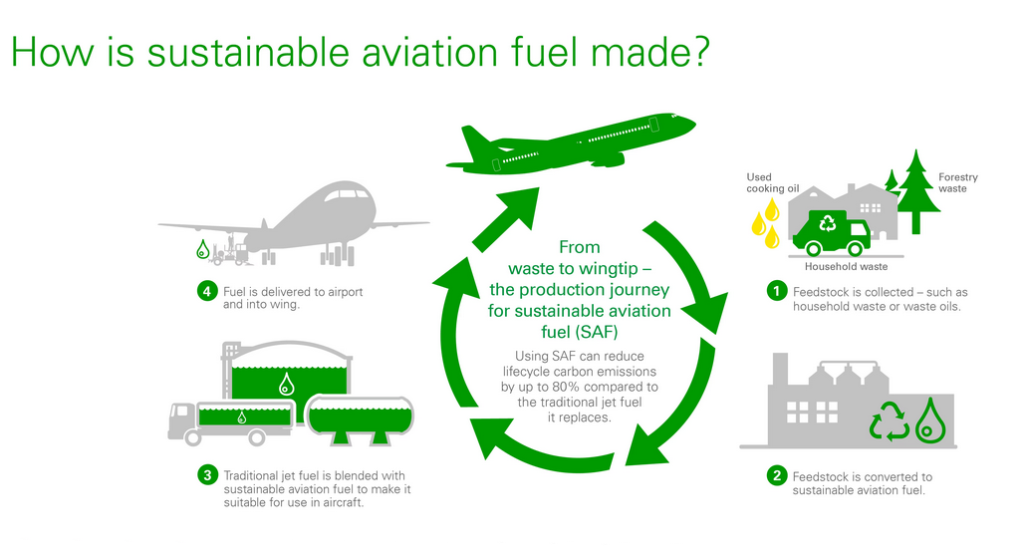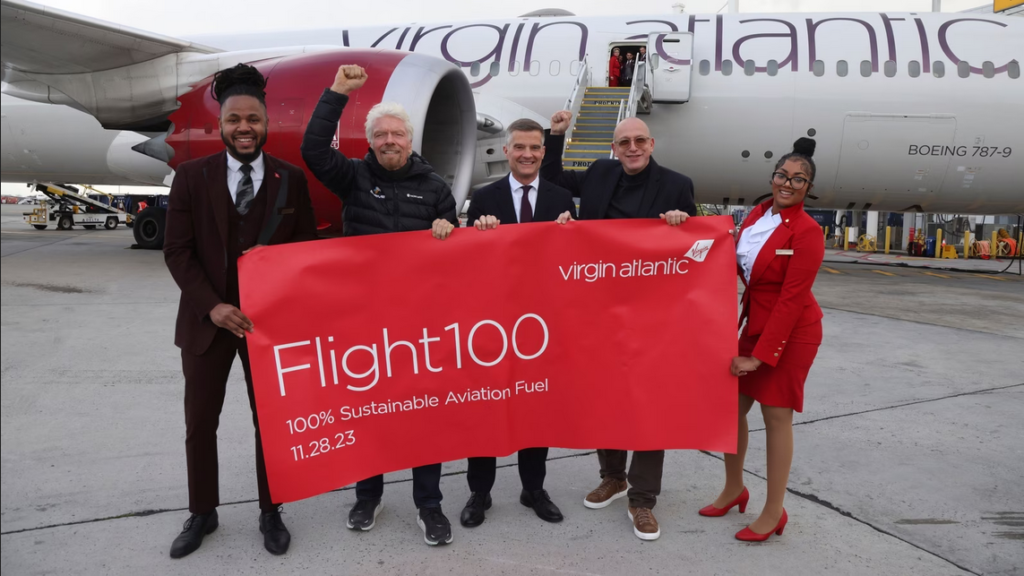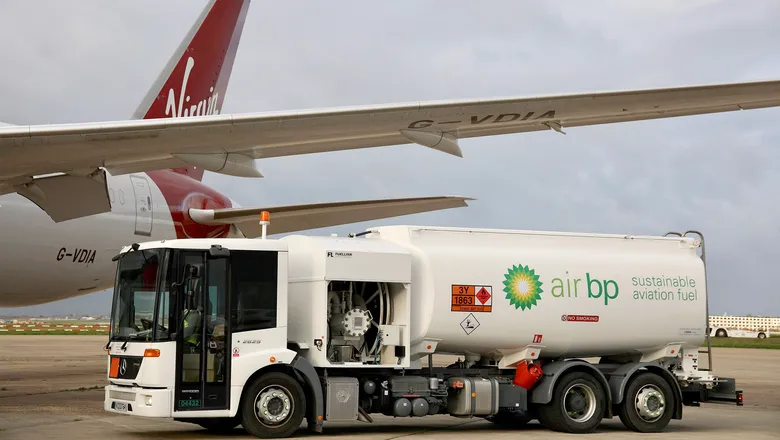Air travel contributes to approximately 2% of global carbon emissions, and this percentage is projected to rise as the airline industry recovers from the decline in passenger numbers caused by the Covid pandemic. It is crucial to decrease emissions from commercial aircraft in order to reduce overall emissions from the travel industry.
Using sustainable aviation fuel (SAF) derived from renewable sources instead of petroleum is considered an effective method to achieve sustainability in airplane operations.

Virgin Atlantic will make history on November 28, 2023, by flying a Boeing 787 Dreamliner from Heathrow to JFK using 60 tons of 100% sustainable aviation fuel. This is a significant milestone as current regulations limit sustainable fuel usage to 50% without engine modifications.
Virgin Atlantic announced on November 6, 2023, that it had been granted approval by the UK’s Civil Aviation Authority to proceed with the flight.

The Civil Aviation Authority has granted a permit after conducting various technical reviews, which involved analyzing different aspects of the planned flight, such as performing ground tests with Rolls Royce on a Trent 1000 engine using 100% SAF.
Virgin Atlantic’s 787 will use a combination of 88 percent HEFA fuel and 12 percent “synthetic aromatic kerosene.” The latter is a compound derived from plant based sugars that helps to lubricate jet engines and reduce fuel leakage around the seals. The combination is expected to reduce carbon emissions by 70%.

This permit not only enables Virgin Atlantic and other airlines to demonstrate their dedication to sustainability, but also demonstrates the industry’s continuous pursuit of new technologies. It is important for innovation and sustainability to be accompanied by safety.
The Virgin Atlantic flight on November 28 may not have a significant impact and could be seen as a mere display of virtue. The reality is that there is a shortage of SAF and it is much more expensive than regular jet fuel. In 2022, the production of SAF has increased significantly compared to 2021, but it still only accounts for less than 0.1 percent of global aviation fuel.
Reference- Virgin Atlantic Newsroom, Clean Technica, Interesting Engineering, World Energy website





